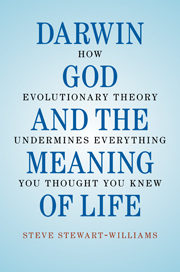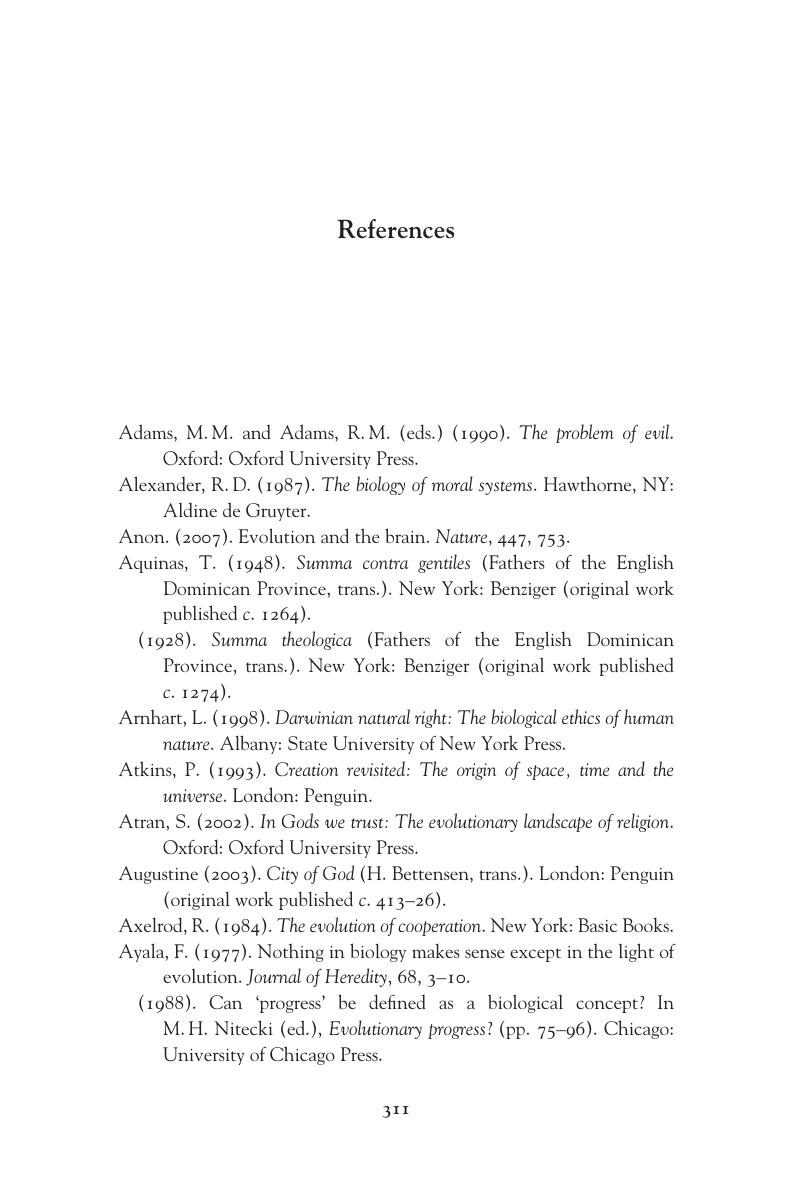 Darwin, God and the Meaning of Life
Darwin, God and the Meaning of Life References
Published online by Cambridge University Press: 05 June 2012
Summary

- Type
- Chapter
- Information
- Darwin, God and the Meaning of LifeHow Evolutionary Theory Undermines Everything You Thought You Knew, pp. 311 - 332Publisher: Cambridge University PressPrint publication year: 2010


